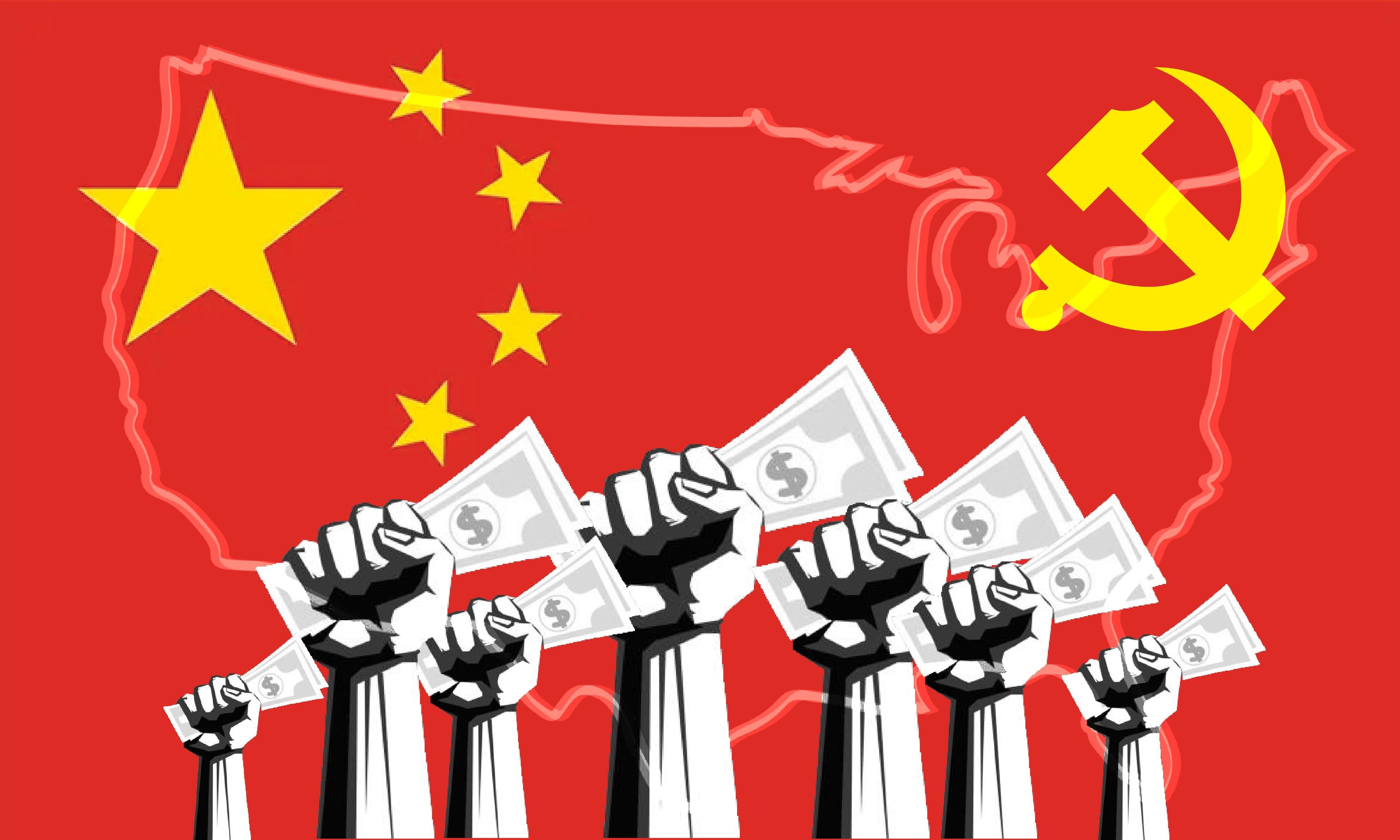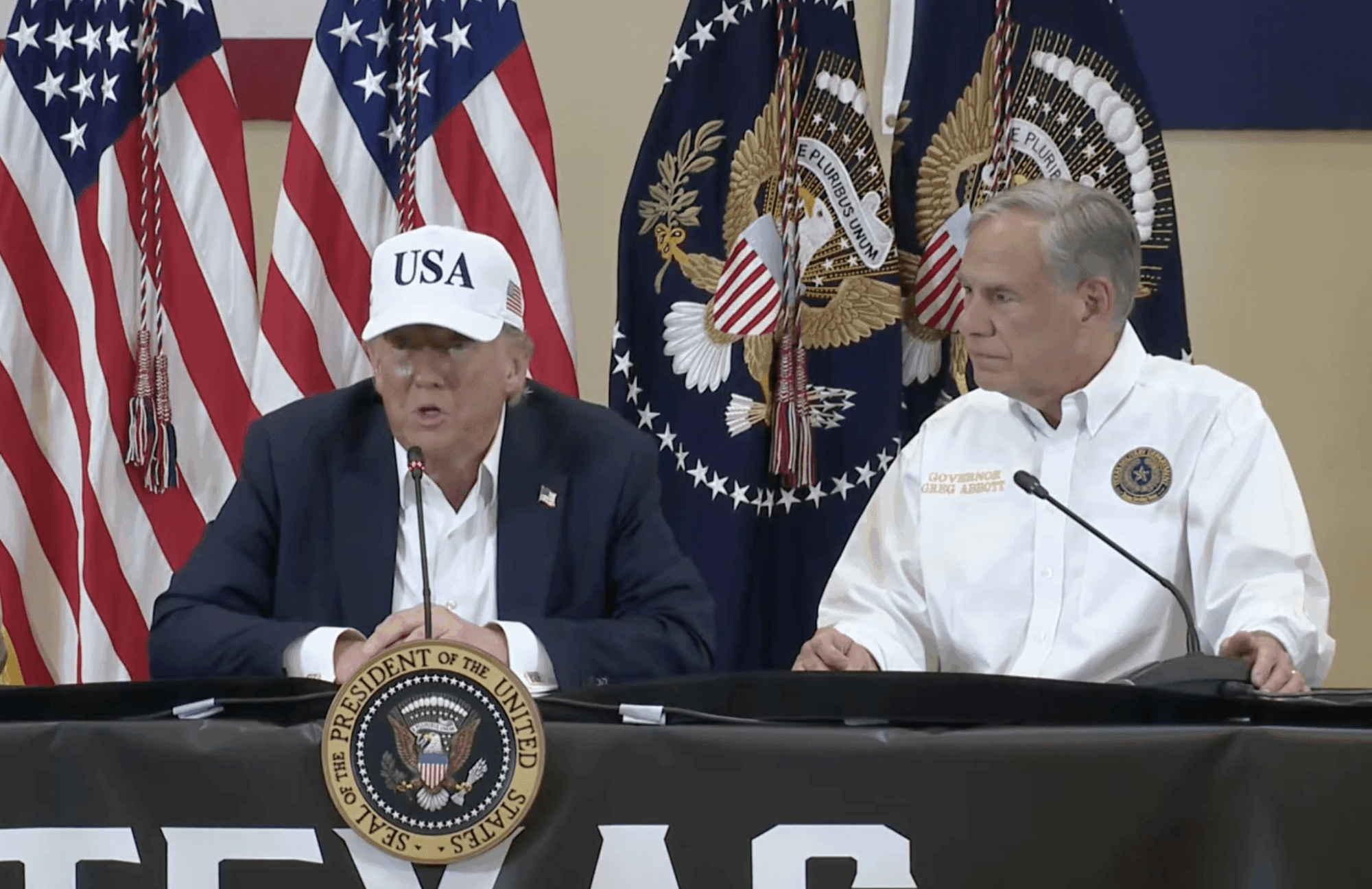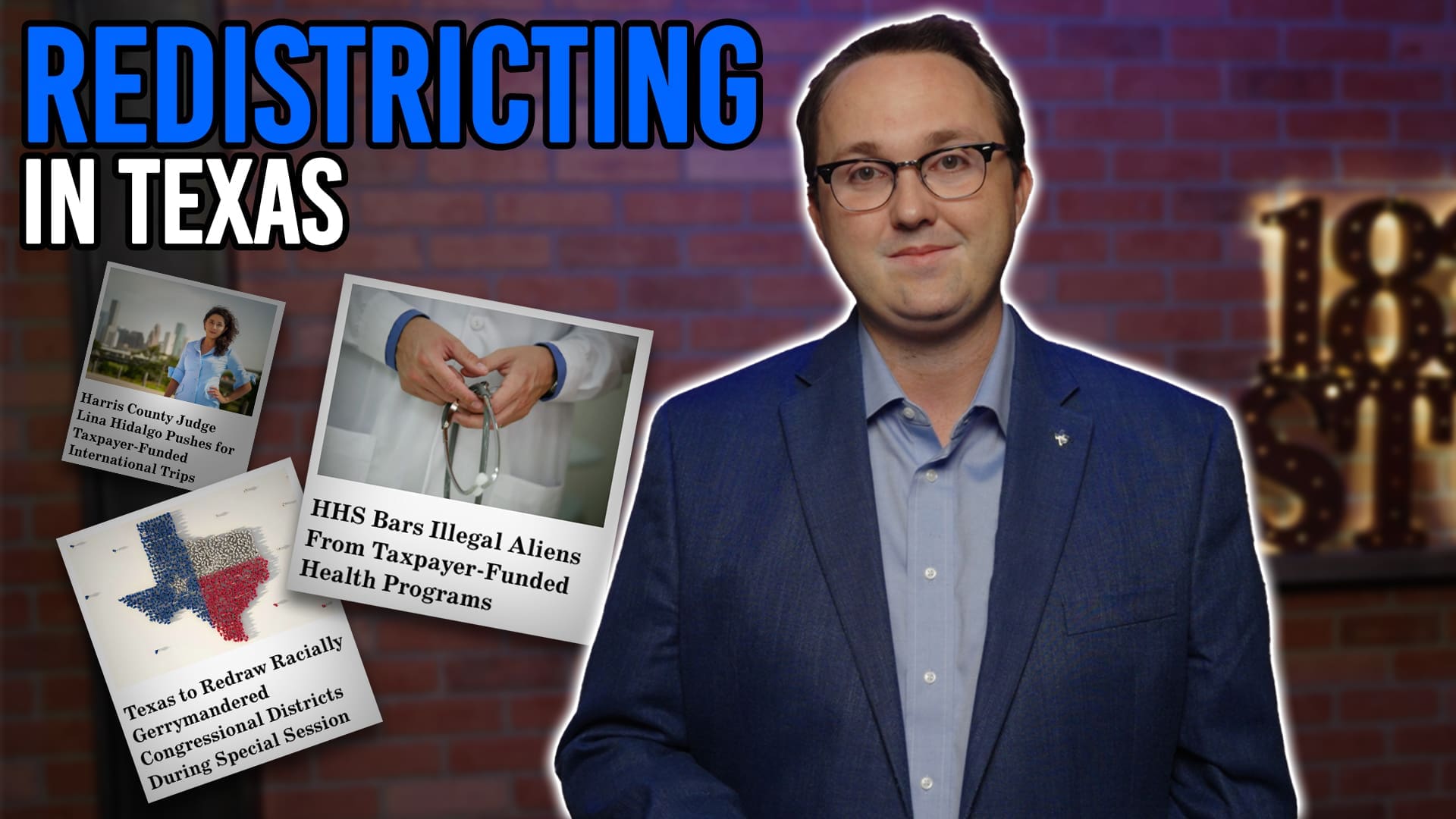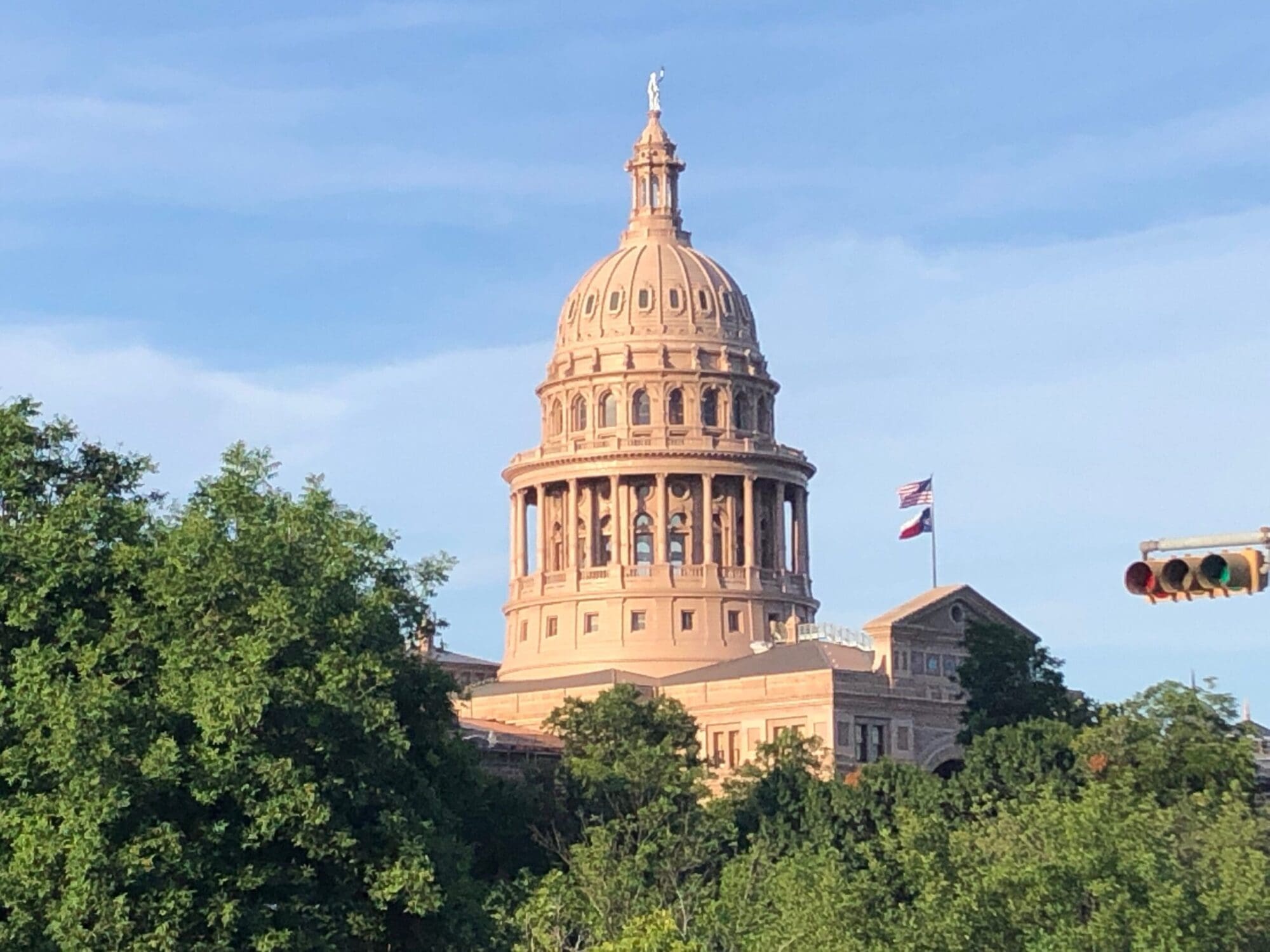Chinese Communist Party groups are lobbying Americans’ and Texans’ public servants for policy outcomes that benefit the CCP.
Most Americans are aware of special interest lobbyists. Few know that the Chinese Communist Party is behind many such lobbying efforts and other international friendship initiatives. Even fewer state and federal lawmakers are poised to defend the homeland from this threat. And the CCP’s inroads into Texas politics go even deeper than previously thought.
China seeks to project its soft power in all areas, including the political realm. It does so in ways that differ from other countries, because its institutions and structures are inherently authoritarian and permeated by communist ideology. Furthermore, they seek to influence the U.S. by shaping the narratives we see to produce policy outcomes that strengthen its grip on the American people.
As previously reported, the central CCP agency that coordinates these efforts is the United Front Work Department (UFWD). There are subsidiary organizations and agencies—collectively known as the United Front—that participate in this international propaganda psyop.
Many of these organizations have innocuous-sounding names, like the Chinese People’s Association for Friendship with Foreign Countries (CPAFFC).
Friends with the Enemy
Although officially, CPAFFC claims to seek “friendly communication with foreign countries,” its real activities are far more sinister.
By its admission, it is controlled by the CCP and subsidized by the enslaved Chinese taxpayer. Some Western academics have called CPAFFC the “public face of the UFWD,” while others claim it is “an official organization masquerading as an NGO.” One need look no further than a 2022 archive of the CPAFFC website (recent attempts to access the live website indicates it may be blocked) to read the CPAFFC President’s remarks:
“Taking Xi Jinping’s Thought on Socialism with Chinese Characteristics in The New Era and his Thought on Diplomatic Work as guidance, we shall hold high the banner of peace, development and win-win cooperation, uphold the principles of mutual respect, equal treatment, friendly cooperation and common development…”
CPAFFC has been remarkably successful in forming political relationships with bureaucrats and lawmakers in both the federal and state arenas—including Texas.
In 2018, the Vice President of CPAFFC, Xie Yuan, met with various Texas political figures to discuss bilateral relationships and cooperation. These figures included Bryan Daniel, head of Economic Development and Tourism at the Governor’s Office; Patricia Shipton, who served as Chief of Staff for then-Speaker Joe Straus; and Andy Icken, Chief Development Officer for the Mayor of Houston, Sylvester Turner. Neil Bush, Chair of the Bush-China U.S. Relations Foundation, and Charles Foster, Chair of US-China Partnerships, were also present.
Bush, son of former President George H.W. Bush, and his organization were covered during Texas Scorecard’s 2022 investigation of the CCP in Texas.
In 2017—one year earlier—the President of CPAFFC, Li Xiaolin, met with Nina Hachigian, who now works as a Special Representative in the Biden State Department.
These connections are concerning as CPAFFC is notorious for “co-opting subnational governments” for its purposes. In the words of FBI Director Christopher Wray: “The Chinese government understands that politicians in smaller roles today may rise to become more influential over time. So they look to cultivate talent early—often state and local officials—to ensure that politicians at all levels of government will be ready to take a call and advocate on behalf of Beijing’s agenda.”
In other words, today’s mayors could be tomorrow’s governors or senators. Finding such friends early could give antagonists a gateway to outsized influence.
For a long time, the CCP has been cultivating relationships with public servants in American cities, even when tensions at the federal level have been high. However, these people-to-people relationships sought after by the CCP don’t stop with individual networking.
Until 2020, CPAFFC had sponsored the China-U.S. Governor’s Forum. However, the Trump State Department withdrew from the agreement that allowed this, citing CPAFFC’s attempts “to directly and malignly influence state and local leaders to promote the PRC’s global agenda.”
This move abolished the formal forum with American governors but did nothing to alter existing agreements between American cities and their Chinese counterparts. There are over 200 such “sister-city” partnerships in existence, according to Chinese state media.
Eight Texas cities have such partnership agreements with a city in China; some have more than one Chinese “sister-city.”
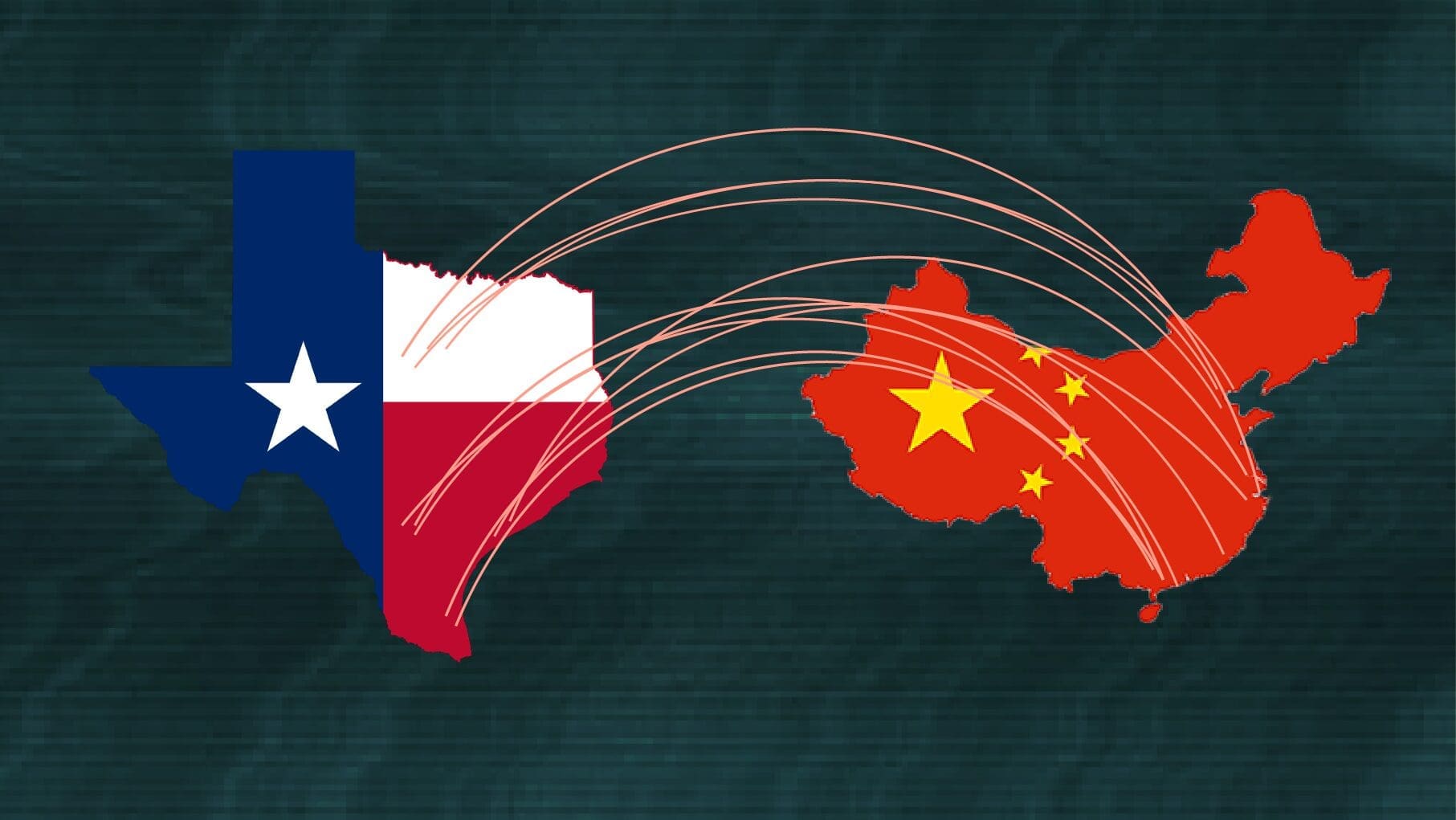
San Antonio’s sister city is Wuxi, per an agreement signed in 2012 by then-Mayor Julian Castro. That particular agreement includes a clause where the city pledges “to abide by the guidelines of the Sister Cities International and the CPAFFC.” It should be noted that then-chair of Sister Cities International (SCI) was Ron Nirenberg, San Antonio’s current mayor. Other Texas cities with Chinese sister-cities include Dallas, Austin, Houston, Southlake, McAllen, Fort Worth, and Laredo.
Laredo is an interesting case, as it has four Chinese sister cities.
In Fort Worth, the city government doesn’t just pay lip service to this friendship. They fork over taxpayer monies too. During the term of previous mayor Betsy Price, the Fort Worth City Council approved $50,000 in 2019 to support the Sister Cities Program as they “cultivate relationships and international understanding” with their global counterparts. The funding continues to this day, as $50,000 was approved by the City Council for Fiscal Year 2023, with a stipulation that an additional $50,000 would be awarded if SCI exceeds its own fundraising goals by $50,000.
As for Austin’s Sister Cities Program, according to its published policies and procedures, the program is supervised by an executive committee governed by the Mayor or Mayor Pro-Tem. According to records received from the city, there was an active, three-year agreement signed in 2022 that disbursed $10,000 in taxpayer funds each year to the Austin Sister Cities International organization to facilitate the program.
Texas Scorecard contacted the mayors of each of these cities for comment on these agreements. Southlake Mayor John Huffman’s office responded with the following comment:

Source: Spokesperson for Mayor Huffman
The official City of Southlake website still lists Wuzhong District as a friendship city. Records received from the city indicate that taxpayers paid $610 for the city’s membership in the Sister Cities International program in 2022, which enables Southlake to continue engaging with its numerous sister cities around the world, including Wuzhong District in China.
A representative from Mayor Eric Johnson’s office in Dallas likewise responded, saying that “The City of Dallas is in the process of evaluating all of its city-to-city partnerships. The agreement you referenced was established at least 20 years before Mayor Johnson’s tenure and is currently inactive.” The official Dallas City Hall website still lists Tianjin as one of Dallas’s current sister cities. In 2019, the City Council planned to address the renewal of a grant agreement with the World Affairs Council of Dallas/Fort Worth for several purposes, one of which was the Sister Cities International program. It is unknown whether the grant was disbursed that year, or in any subsequent years.
No response was received from the other officials before publication. The websites for the cities of Austin, Laredo, and Houston all likewise confirm the current existence of such sister-city relationships with their Chinese counterparts.
Although these relationships are promoted as avenues of cultural exchange and international communication, they open the door to CCP influence. According to a Hoover Institute report, “local American ‘exchange’ companies that bring Chinese delegations to the United States and promote professional interactions between the United States and China all depend on official PRC sanction and have received approval to receive Chinese delegations.”
Many lawmakers at the federal level have likewise warned of this double purpose. According to U.S. Sen. Marsha Blackburn (R–TN),
“Sister city partnerships are one of Beijing’s favorite political weapons. Across the globe, Communist China has exploited these relationships, ostensibly to promote cultural exchange. The truth is that these partnerships are much more sinister and are part of the CCP’s Belt and Road Initiative to achieve geostrategic goals.”
The CCP itself has said as much. Li Xiaolin, president of the CPAFFC, admitted: “Friendship city relations have become one of the important channels to implement the BRI [Belt and Road Initiative].”
Evidence exists of the pressure Beijing can put on China’s sister cities.
One day after Prague approved a partnership with Taiwan in 2020, Shanghai canceled its existing partnership with the Czech Republic capital. In a statement, Shanghai alleged “[t]he administration of the city of Prague of the Czech Republic has repeatedly made wrongful moves on the Taiwan question… The Shanghai Municipal People’s Government and its people express our strong condemnation and solemn protest.”
Taiwan has been a geopolitical hotspot for some time. The former government of China fled there after World War II when the Communists took over the mainland. Beijing has repeatedly refused to acknowledge Taiwanese independence and wants to reunite the two countries. Beijing shows hostility towards any attempts by other powers to recognize Taiwanese independence.
This pattern of repression isn’t new. Back in 2006, the city of Irvine, California signed a memorandum with Xuhui District in Shanghai, pledging “not to send official city delegations to Taiwan, not to fly the Taiwanese flag and not to play the Taiwanese national anthem or attend National Day celebrations.” The agreement also “stipulates that Irvine recognizes ‘that there is only one China.’” The mayor claimed that the memo was signed by a city employee without authorization, and assured citizens that the agreement was not binding and the city would not abide by its terms.
Similar examples abound.
In light of these events, several U.S. senators, Blackburn among them, proposed a law entitled the “Sister City Transparency Act.” It would allow the Government Accountability Office (GAO) to review such city-to-city partnerships with China. U.S. Rep. Chip Roy (R–TX) introduced an identical piece of legislation in the House, H.R. 1852.
“The need to ensure that U.S. city partnerships with Chinese cities are not exploited and that they don’t threaten our national security and prosperity should be obvious to anyone paying attention,” Roy stated.
There are other means the CCP uses to influence the policies and decisions of American cities.
Buying Influence and Access
Much is made of foreign interference in U.S. elections. But by comparison, very little attention is paid to the foreign agents molding and shaping the actions of newly elected officials at the federal and state levels once the elections are over—and the millions of dollars that fund their efforts. Bluntly, this would be lobbying, the process where individuals from various firms are paid to promote their clients’ legislative priorities to elected officials.
Foreign entities take advantage of this process.
According to testimony from Erin Baggott Carter, a Hoover fellow and assistant professor, before the U.S.-China Economic and Security Review Commission, “Chinese scholars call for the Chinese Communist Party (CCP) to use lobbying to build ‘grand legislative alliances’ in democratic parliaments that blunt hostile legislation and facilitate China’s rise.” Since Xi Jinping rose to power, “Chinese lobbying doubled from five to ten million dollars a year. It pivoted from a typical focus on trade issues to ‘soft lobbying’ that seeks to build goodwill towards China in government, the media, and academia. By 2017 these targets accounted for over half of all Chinese lobbying activities and 90% of expenditures.” Carter’s report states that “between 2003 and 2018, 643 members of Congress were lobbied by the Chinese government and its affiliates.” The chart below illustrates which members of Congress drew the most attention in these lobbying efforts:

Source: U.S.-China Economic and Security Review Commission
Lobbying, both foreign and domestic, tends to have a revolving door of former politicians who enter the lobbying business after officially concluding their terms in public office. For instance, former U.S. House Speaker John Boehner (R–OH) joined lobbying firm Squire Patton Boggs and represented the Chinese embassy after having spearheaded the effort to give China Most Favored Nation trading status.
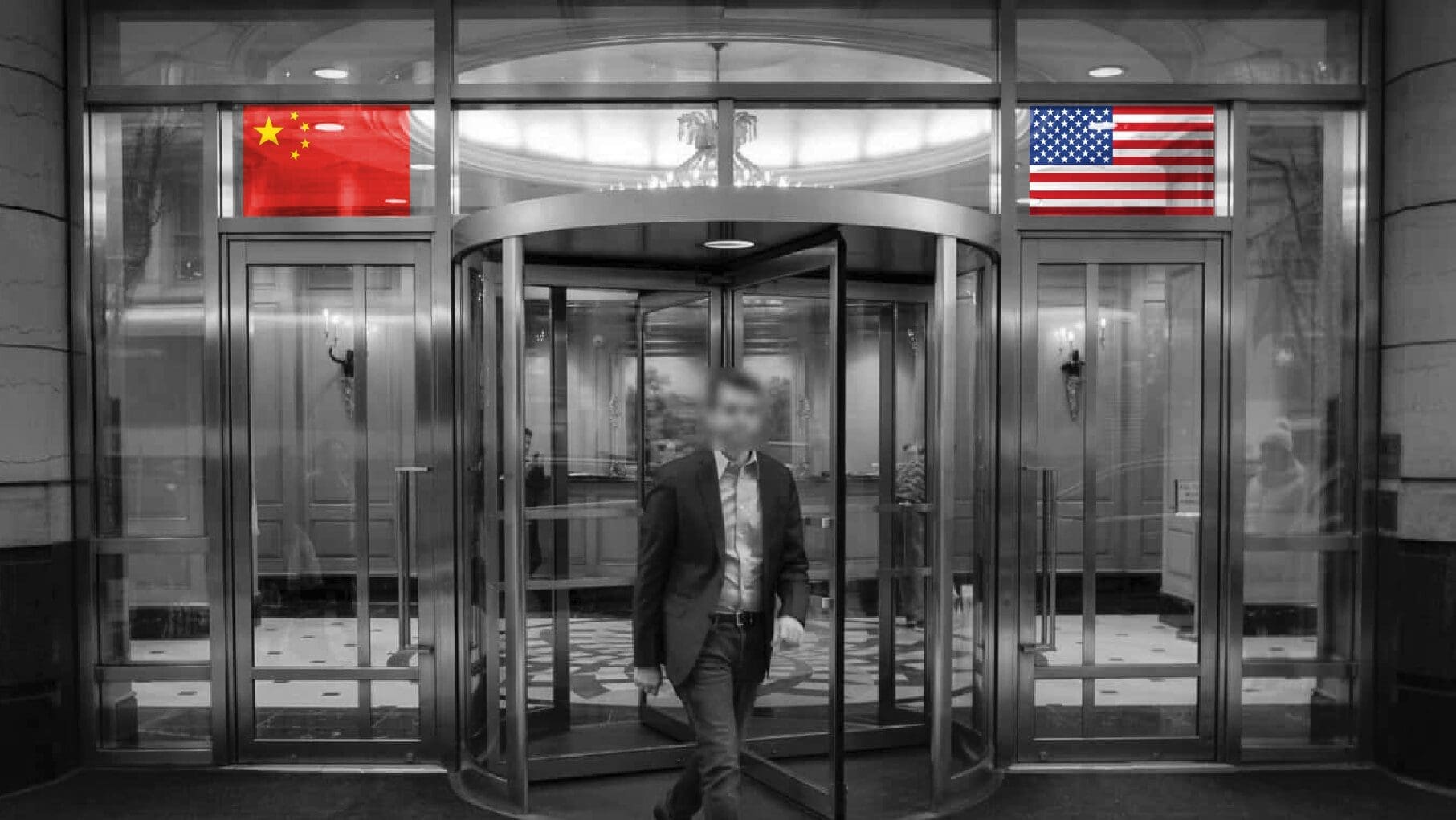
Former Congressman Jeff Denham (R–CA) joined Dentons US LLP to lobby on behalf of TikTok in 2023. Dentons merged with Dacheng Law in 2015, a firm founded by Peng Xuefeng, a member of the Chinese People’s Political Consultative Conference (CPPCC). Former U.S. Senator David Vitter (R–LA) lobbied on behalf of another Chinese company, Hikvision. The list goes on.
CCP Psyop
Efforts by Beijing to indoctrinate Americans have been exposed.
One of the most prominent Chinese organizations active in the lobbying realm is the China-U.S. Exchange Foundation (CUSEF). Although it claims to be an independent organization, nearly all of its chairs and other board members hold positions on committees of the Chinese People’s Political Consultative Conference (CPPCC). According to the Australian Strategic Policy Institute (ASPI), “The CPPCC is a Chinese government body ‘chaired by the Politburo Standing Committee member responsible for the united front system and attended by more than 2,000 party‐approved representatives from different sectors of PRC society.’” Its role in the United Front for “the struggle for socialist modernization and for the reunification and unity of the country” is reiterated in the Chinese Constitution.
CUSEF has registered as a foreign agent in the United States and has admitted to being subsidized and financed in part by a foreign government. Several U.S. lobbying firms have accepted CUSEF as a client.
One of these firms is BLJ Worldwide. The firm performed many services on behalf of CUSEF, primarily “defending and promoting China and the key strategic areas in the China-U.S. relationship in the media.” For example, BLJ coordinated trips to China for various U.S. journalists from establishment outlets like Newsweek, U.S. News and World Report, the Chicago Tribune, and the National Journal. The firm also assisted and participated in the drafting of dozens of articles for numerous American outlets. BLJ even examined several U.S. high school textbooks and their treatment of sensitive political issues like the relationship between Tibet and China, after which they “submitted a report along with recommendations for countering the tide of public discourse.”
While many Americans may think they are reading material from American publications with American interests at heart, the evidence indicates that some of these materials are curated and promoted by the CCP and its subsidiaries to push their own agenda.
One particular way BLJ does this on behalf of CUSEF is “supporting the ChinaUSFocus.com website and social media accounts.” China US Focus is an online publication sponsored by CUSEF and managed by BLJ Worldwide. This is a pattern for the CCP: “using a public relations firm to manage a synthetic think tank publication, which in turn publishes material that aligns with PRC propaganda narratives.”
Something similar happened in the Czech Republic in 2019, where a PR company wrote pro-Beijing propaganda for establishment media outlets while posing as an independent media project.
In 2017, BLJ received more than $2.3 million from CUSEF. In 2018, 2019, 2020, 2021, and 2022, CUSEF gave BLJ a total exceeding $3.2 million. As of December 2022, their work on behalf of CUSEF appears ongoing.
Another firm that has represented CUSEF’s interests—and those of the CCP—in Washington, D.C. is Wilson Global Communications. The priorities of these two organizations are closely aligned, especially since the founder of Wilson Global, Julia Wilson, formerly worked as a public relations liaison for CUSEF. According to a filing in March 2020, Wilson Global focused on lobbying U.S. elected officials.
There also appear to be efforts by Beijing to infiltrate and influence the black American community. Reporting indicates that some of the officials contacted by Wilson Global were members of the Congressional Black Caucus. CUSEF repeatedly interacted with the offices of U.S. Rep. (and Houston Mayoral candidate) Sheila Jackson-Lee and U.S. Rep. (and U.S. Senate candidate) Colin Allred (D–TX). A spokesperson for Rep. Allred’s office told Texas Scorecard: “Congressman Allred is a member of the House Foreign Affairs Committee, therefore our office receives outreach from many firms acting as foreign agents. Congressman Allred did not meet with this firm or its client.” No response was received from the office of Congresswoman Jackson-Lee.
This isn’t the first connection between CUSEF and the Congressional Black Caucus. In 2014, a Chinese company called Wanxiang partnered with American universities to bring delegations of students to China. One such delegation came from Lone Star College in Houston. Another group was the Emerging Leaders: the US-China Study Delegation, backed by the Chinese Ministry of Education and the Congressional Black Caucus. Both of these groups were organized through CUSEF.
One particular service offered by Wilson Global was the management of the HBCU-China Network, a program that allows students from historically black colleges and universities (HBCUs) to study at Chinese universities via scholarships provided by the Chinese government. Two Texas schools are part of this network: Jarvis Christian College and Huston-Tillotson University.
Foreign Agent Registration Act documents reveal that the president of Jarvis Christian College, Dr. Lester Newman, was one of a delegation to visit China in December of 2018. The trip included a visit to the Confucius Institute Headquarters.
Confucius Institutes are overseas influence programs run by the Chinese Communist Party through ostensibly “non-governmental” organizations.
During that same trip, there were also two visits with high-ranking executives from the Chinese People’s Association for Friendship with Foreign Countries (CPAFFC), and campus visits to several Chinese universities: Beijing University of Chemical Technology, Beijing Language and Culture University, Donghua University, Chongqing University, and Shanghai University of International Business and Economics.
Each of these universities have concerning red flags.
Beijing University of Chemical Technology is classified by the Australian Strategic Policy Institute (ASPI) as a high-risk institution with secret security credentials due to its involvement in defense research. The university was created jointly by the Ministry of Education and the defense agency SASTIND (State Administration of Science, Technology, and Industry for National Defense). Beijing Language and Culture University is “directly under the administration of the Ministry of Education of the People’s Republic of China,” and was founded under the guidance of Premier Zhou Enlai. Both Donghua University and Chongqing University are considered medium-risk institutions by ASPI. Shanghai University of International Business and Economics has pledged to “follow the guidance of Xi Jinping Thought on Socialism with Chinese Characteristics for a New Era, adhere to the socialist direction, stick to the establishment of moral education, and fully implement the Party’s education policy.”
Texas Scorecard contacted Dr. Newman at Jarvis Christian College as well as representatives from Huston-Tillotson University. No response was received before publication.
Aside from its lobbying activities, CUSEF has also offered funding to the University of Texas at Austin. In 2018, it offered a grant to the China Public Policy Center at the university, but the university declined due to the organization’s ties to the CCP. Many praised this decision, including U.S. Sen. Ted Cruz (R–TX). It has reportedly also given grants to the Brookings Institution, the Carnegie Endowment for International Peace, and the Asia Society.
Embassy Business
Another prominent client of American political lobbying firms is none other than the Chinese Embassy.

BLJ Worldwide received $24,000 from the Chinese government in 2017, and $168,000 from the government of Taiwan. In 2018, 2019, and 2020, they received a total of $768,000. Their work on behalf of the Embassy included “public relations services, including media monitoring, social media support, drafting and editing of statements and communications, media relations, media training, crisis management, and event support in support of the Embassy’s programming and activities.” As they did for CUSEF, BLJ also curated and produced media narratives on behalf of the Embassy.
Their relationship with the Chinese Embassy ended on September 28, 2020.
Aside from raking in millions of dollars from CUSEF and the Chinese Embassy, BLJ Worldwide also received a loan from American taxpayers during the Chinese coronavirus as part of the Paycheck Protection Program, amounting up to $350,000.
Another lobbying firm, Squire Patton Boggs, lobbied on behalf of the Embassy from 2019–2023, charging a $55,000 monthly retainer. It decreased to $38,000 in 2022. The existing agreement was slated to end on July 10, 2023.
Texas Scorecard asked Squire Patton Boggs, BLJ Worldwide, and Wilson Global Communications to comment on these relationships. No response was received before publication.
There is another foreign client that has been represented on the national stage: the Chinese Transpacific Foundation. Their lobbying representative was Capitol Counsel. Their primary project was an exchange program that would “provide the Members of Congress and/or the congressional staff the opportunity to enhance their understanding of the cultural, economic, political and social developments” in China. This relationship was sought out by the Chinese Embassy, specifically Chinese “Ambassador Extraordinary and Plenipotentiary” Cui Tiankai. Furthermore, this program would be completely funded by the Chinese government, specifically the Embassy. This relationship with the China Transpacific Foundation lasted until May 2022. Capitol Counsel had also lobbied for CUSEF, ending that relationship only in March 2023. Two former U.S. congressmen, Jim McCrery (R–LA) and Charles Boustany (R–LA), also worked at Capitol Counsel.
Making Deals with the Devil
Exchange foundations aren’t the only ones seeking to influence American lawmakers. It’s also Chinese companies—often in the surveillance technology sector—who wish to influence public policies surrounding their products at the federal and state levels.
Squire Patton Boggs, the firm which took on the Chinese Embassy as a client, also lobbied on behalf of the Chinese drone company, DJI Technologies, when their products faced Congressional scrutiny with legislation like the Countering CCP Drones Act. Texas Scorecard has previously reported on DJI’s ties to the CCP, including their collaboration with Chinese police surveillance efforts on the mainland and falling in lockstep with the CCP agenda.
Another company notorious for its close connection with the CCP is Hikvision. A surveillance technology company, Hikvision has won contracts for facial recognition software and cameras in Xinjiang, China—possibly for the CCP’s repressive “re-education” camps for the Uyghur Muslim minority. Hikvision even released an artificial intelligence camera in China that was capable of distinguishing between ethnicities, specifically between Uyghurs and non-Uyghurs. The Trump administration determined Hikvision to be controlled by the Chinese Red Army and added the company to the trade blacklist. Unlike other pro-China actions of the Biden administration, President Biden (D) signed an executive order banning American investment in surveillance products from companies like Hikvision with connections to human rights violations and the CCP.
Although this executive order prohibited government investment, it did not touch political lobbying. Hikvision has had tremendous success in the lobbying game, hiring Mercury LLC, Sidley Austin LLP, and BCW Global to lobby on its behalf in recent years. In 2018, Mercury lobbied lawmakers and executive agencies “specifically concerning provisions of the National Defense Authorization Act” as they pertained to Hikvision. One of the lobbyists on this team was David Vitter, a former Republican U.S. Senator from Louisiana. Vitter praised this partnership highly, calling himself a “proud member of the Hikvision team.” He said the “collective goal in this very negative, anti-China trade war environment has really been to make sure Hikvision survived in the United States.” In their 2018 contract with Hikvision, Mercury stood to gain $55,000 each month of the partnership. Another lobbyist, Peter Kucik, came to represent Hikvision in 2021 at Mercury after spending “seven years at the U.S. Treasury Department’s Office of Foreign Assets Control (OFAC).”
Sidley Austin LLP also represented Hikvision in their campaigns against National Defense Authorization Act restrictions from 2018-2022. In that time, the firm received over $7 million in compensation from Hikvision USA.
BCW Global still has an ongoing relationship with Hikvision, with their contract slated to end in December 2023. They have reportedly received over $3 million from Hikvision in 2022 alone.
Although concerning, these records are not exhaustive. The Lobbying Registration Act reportedly goes relatively unenforced, and many lobbyists do not register as the law requires. Certain foreign countries also tend to underreport their lobbying activities, with China having the second-lowest FARA (Foreign Agent Registration Act) disclosure rate after Russia.
Bad Actors in Texas
Texas is not safe from Hikvision’s intrusions.
In the Lone Star State, its products are readily purchased by state and local agencies. According to a report conducted by IPVM, the following state agencies, and school districts have purchased Hikvision products between 2018 and 2021:

Source: Google Maps and IPVM
Numerous government school districts have purchased these products, including Conroe ISD, Alief ISD, Clint ISD, Willis ISD, Spring ISD, Harlandale ISD, Gainesville ISD, Katy ISD, Los Fresnos CISD, Denison ISD, Houston ISD, Jacksonville ISD, Rockdale ISD, and Pasadena ISD.
Government schools like UTSA, Texas Tech University, Alamo Community College District, Wharton County Jr. College, School of Science and Technology Charter Schools, Lamar High School, Harmony Public Schools, and Texas A&M AgriLife Research have also made purchases, as have the Texas Department of Criminal Justice and the Brazos Transit District.
Texas counties, including McLennan, Nueces, Webb, Jefferson, Hidalgo, Cameron, and Bee counties are also listed. The cities on the list include Cedar Park, Port Arthur, LaPorte, Blue Mound, Harlingen, Orange, Friendswood, Killeen, and Fort Worth.
Neither State Sen. Brandon Creighton (R–Conroe) nor State Rep. Brad Buckley (R–Salado), who chair the Texas Senate and House Committees on Education, replied to a request for comment on school district purchases of these tainted products.
Neither did State Rep. Todd Hunter (R–Corpus Christi), who chairs a committee that handles local government issues.
In January 2023, Governor Abbott’s office issued a statewide plan to prohibit state agencies from purchasing technologies from Hikvision, among other entities. How this plan has been implemented thus far, and whether it will be enough to stymie this influx of Chinese spyware, is yet to be seen.
Texas Scorecard contacted Governor Greg Abbott’s office for comment, but none was received before publication.
As this example shows, China doesn’t just lobby elected officials at the federal level. It lobbies the entire industrial sector in the United States to achieve its ends. While Texans may have little control over federal lobbying laws, the defensive measures at the state level have yet to prove impenetrable. Much like the open border, many of those measures have been found weak and porous.
In recent years, the CCP has found a particular interest in Texas commerce and land—and that interest hasn’t died down.
In the final part of this investigative series, Texas Scorecard will examine how the CCP seeks to levy its industrial influence in the Lone Star State.
